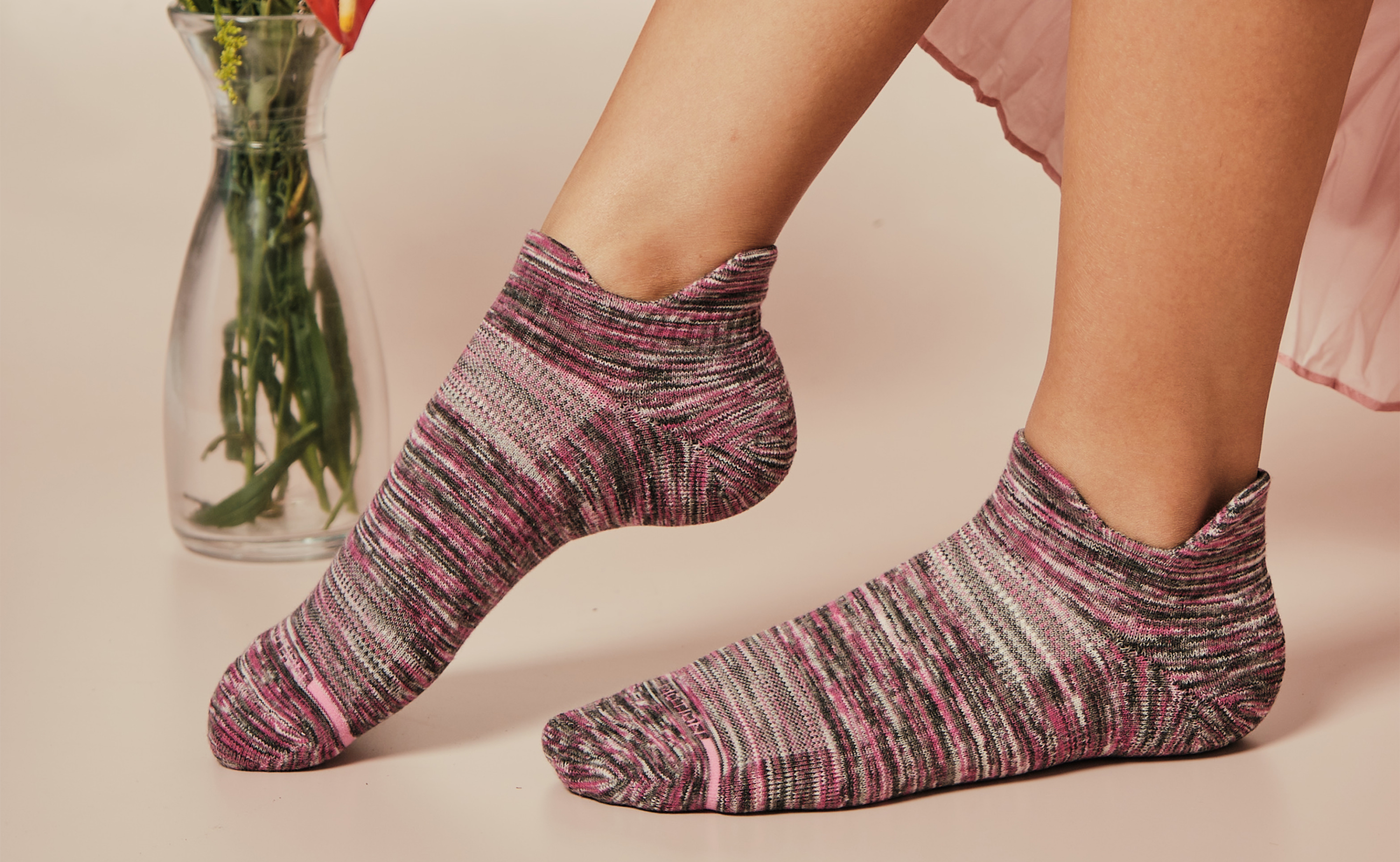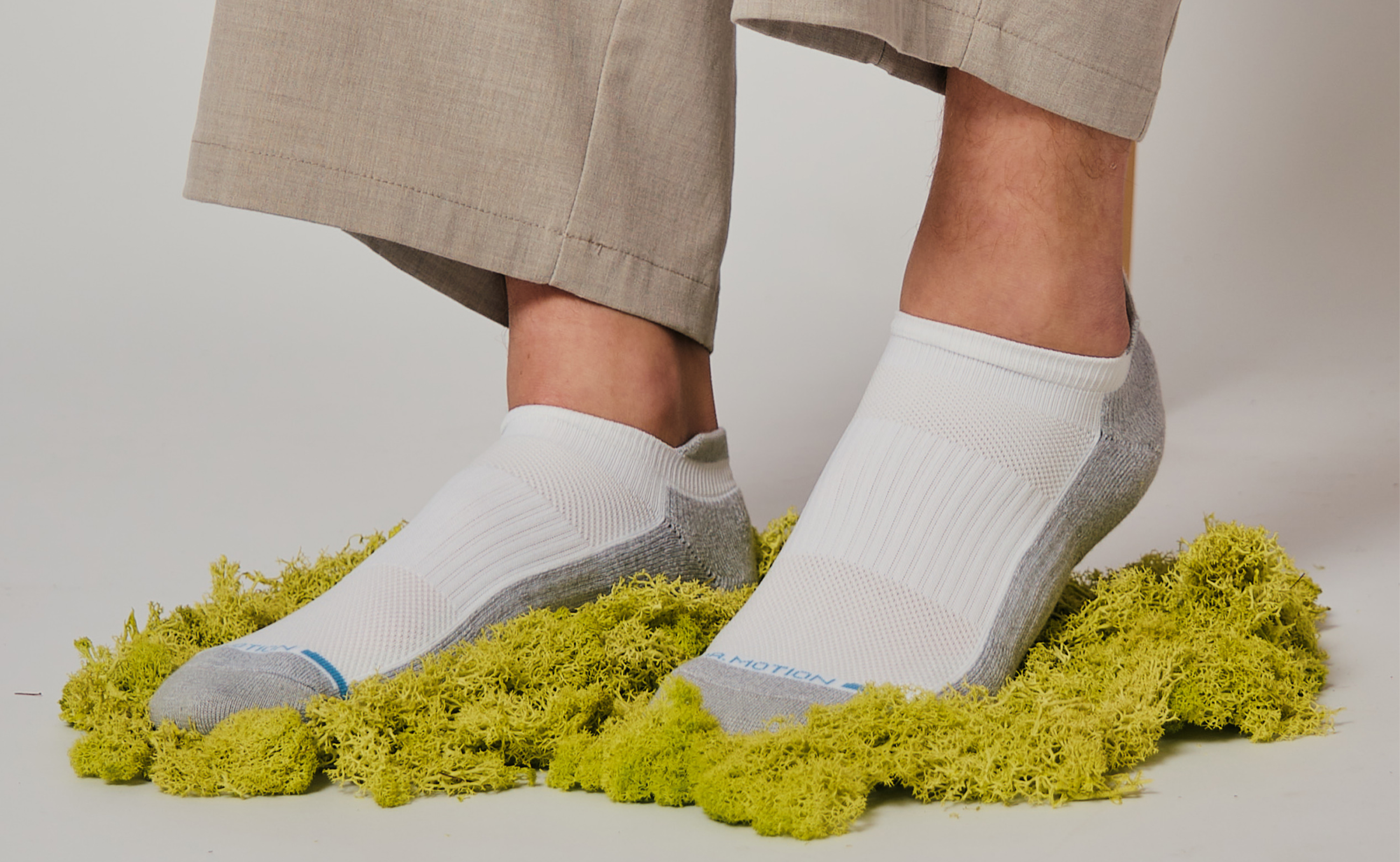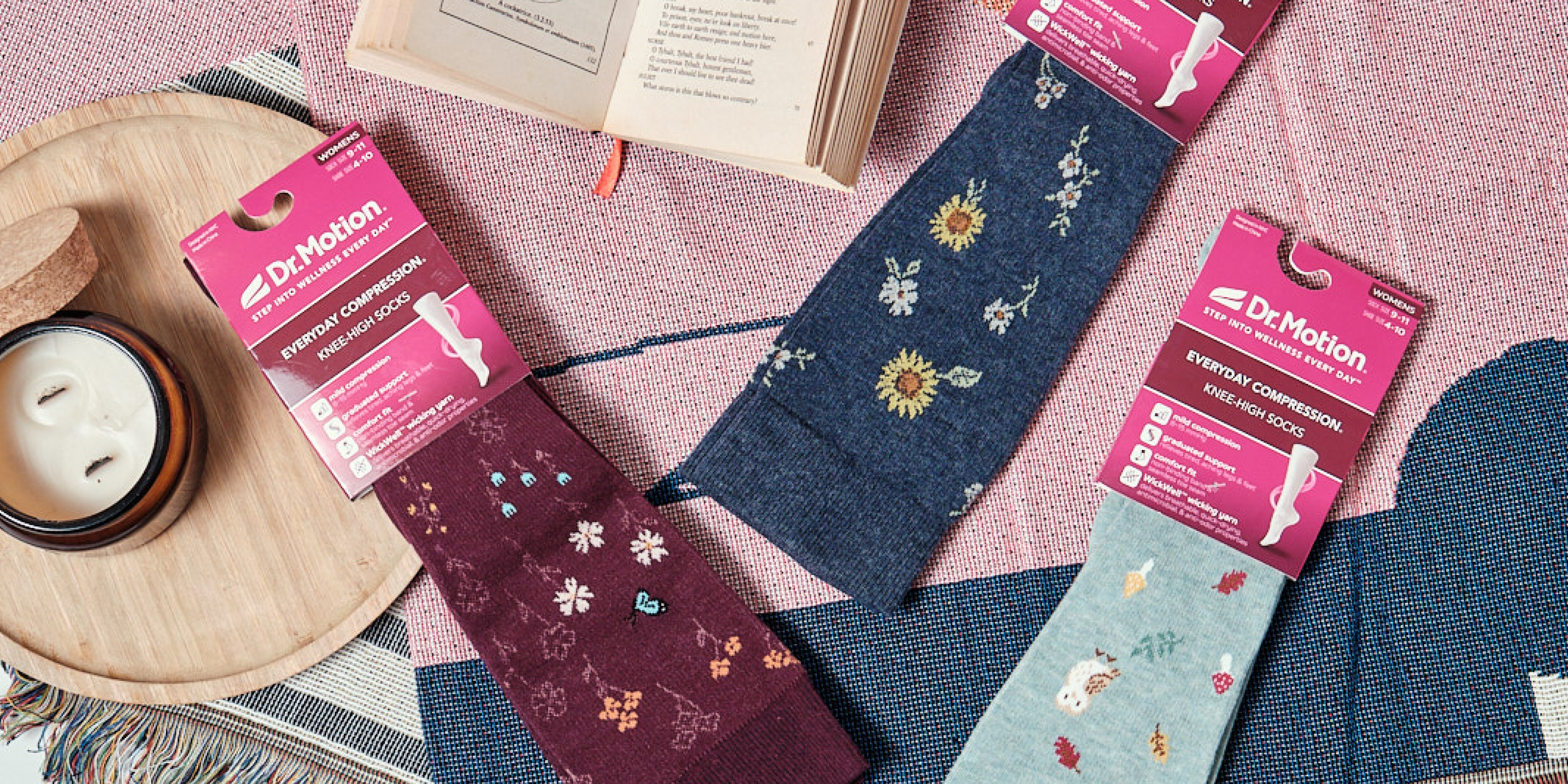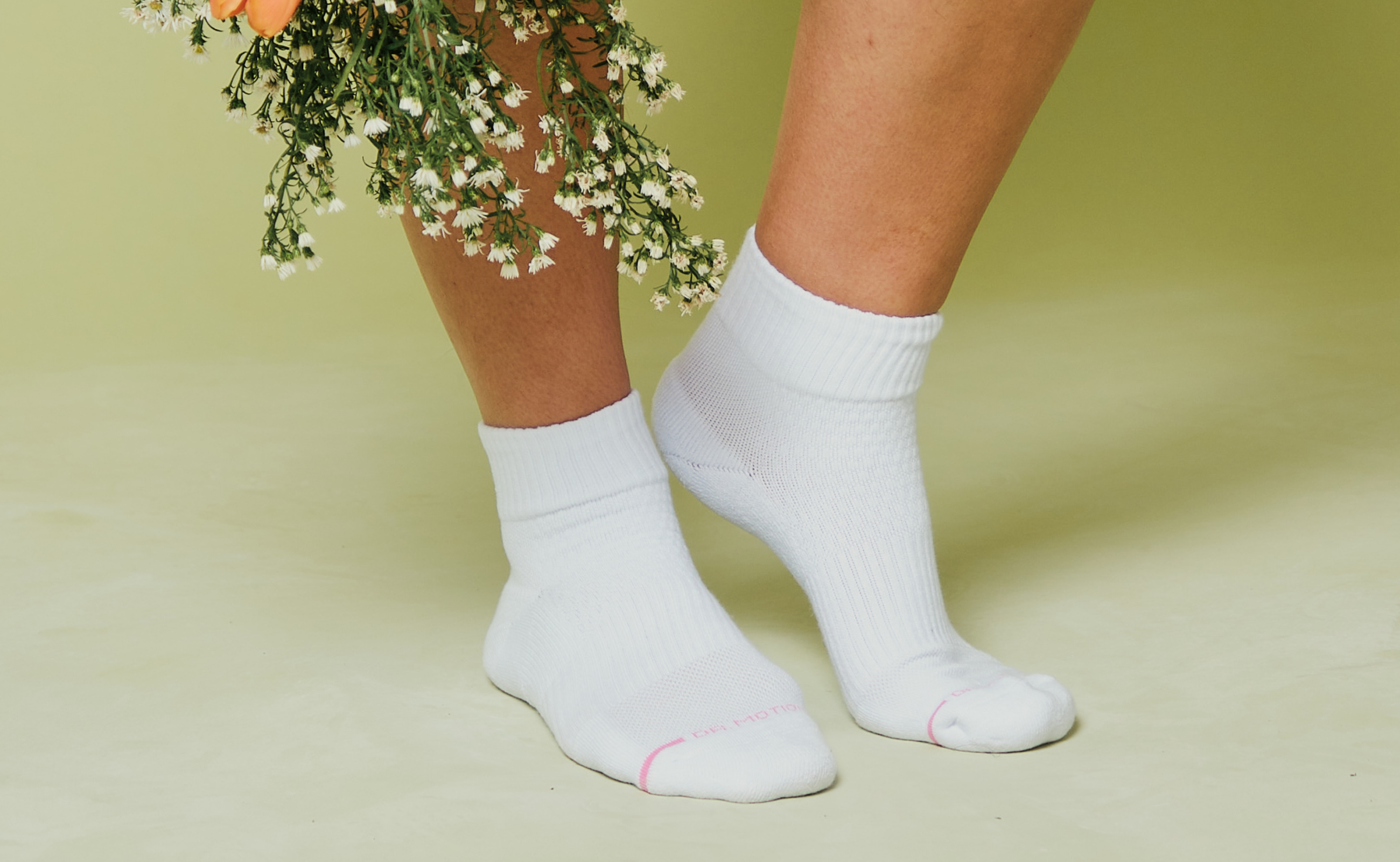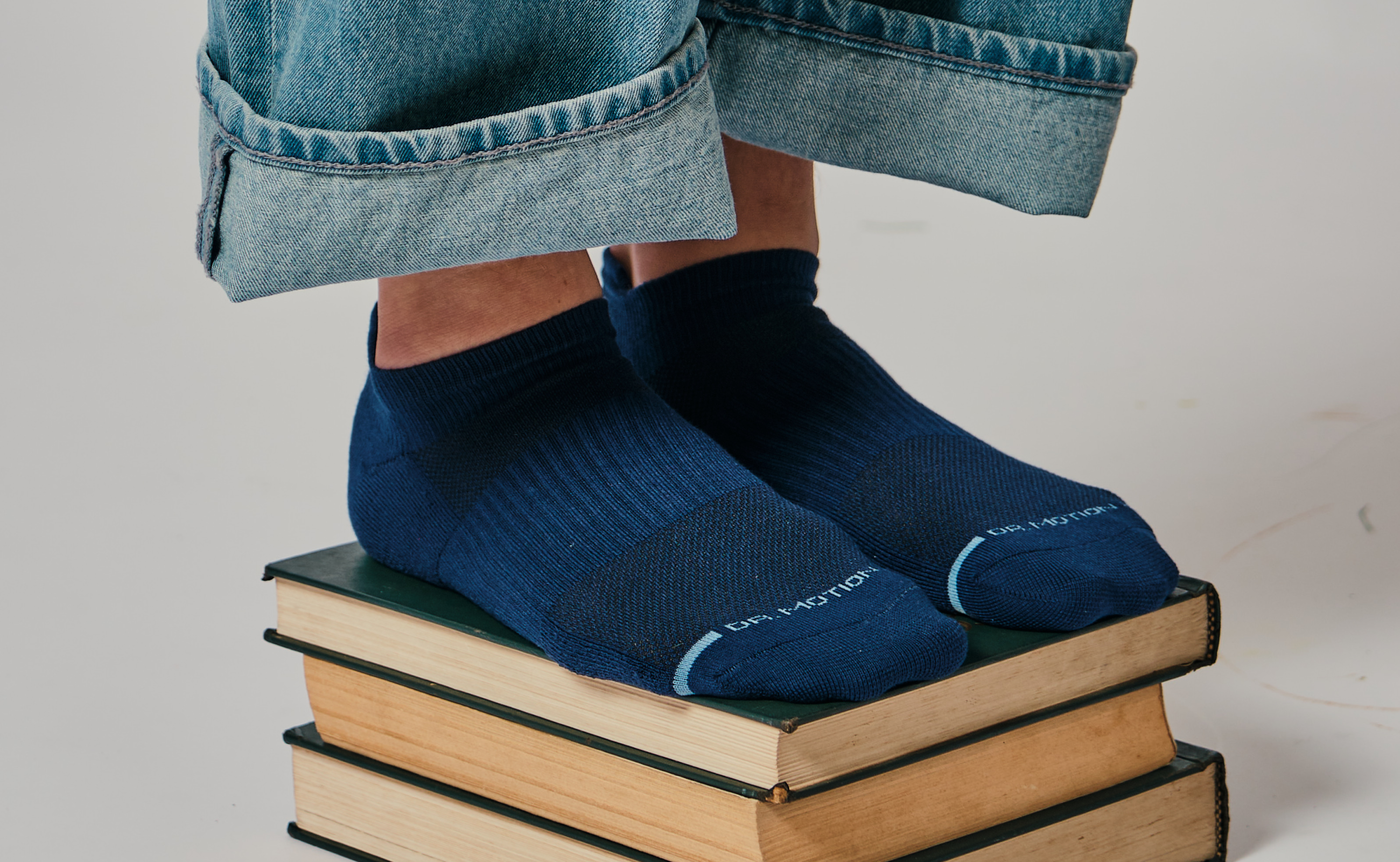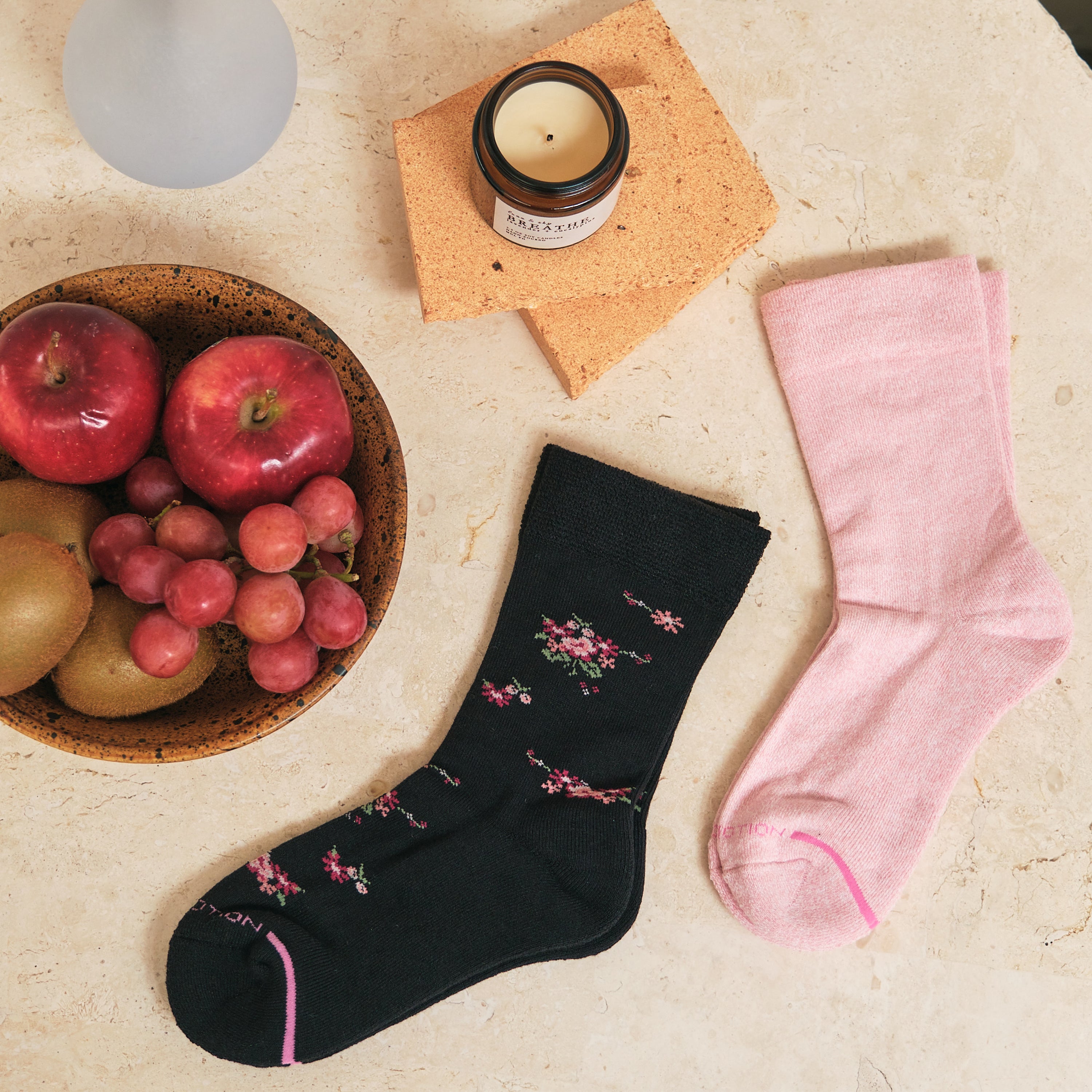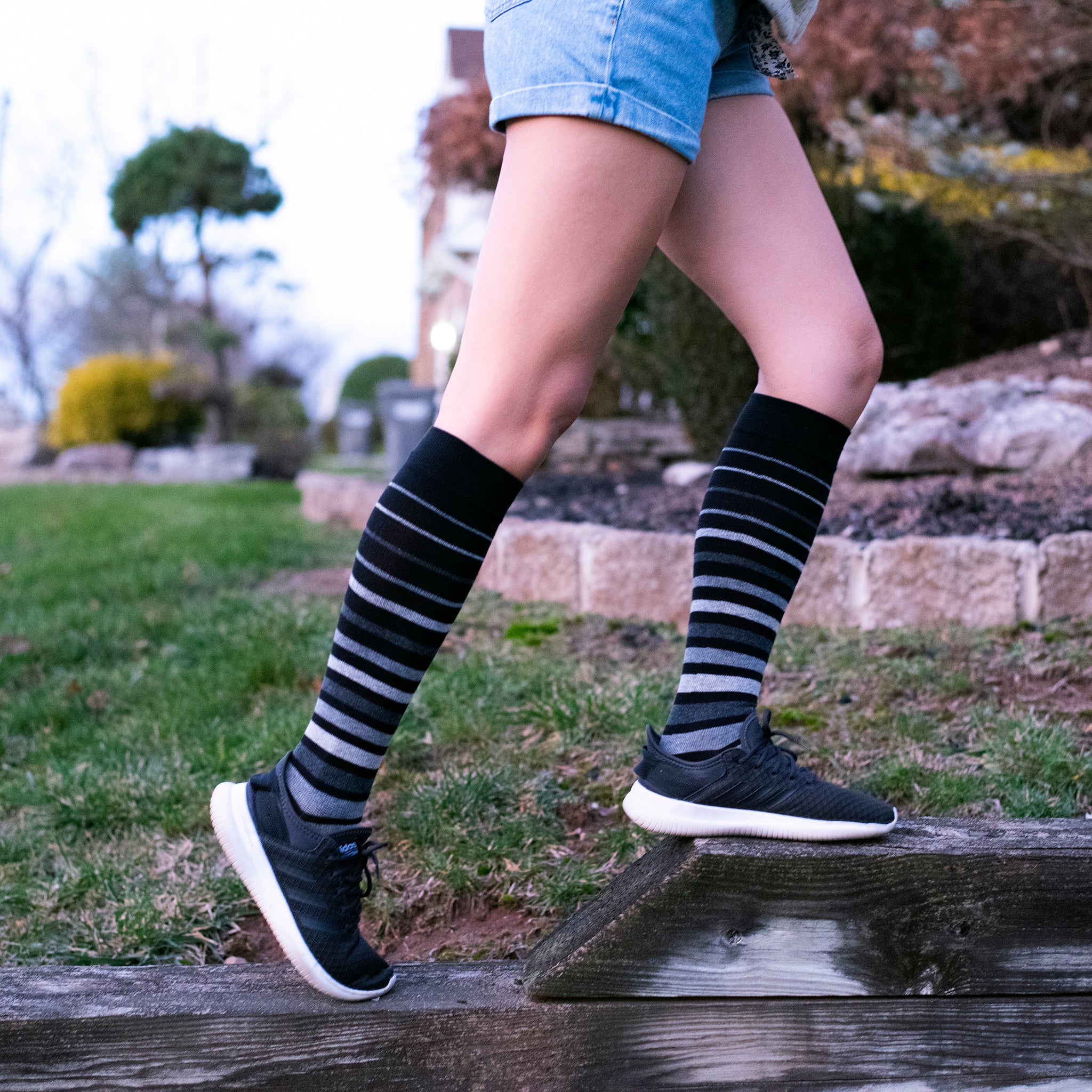Best Compression Socks for Swelling
Anyone who wears compression socks will benefit from the gentle pressure therapy delivered due to the socks' special design and material. Compression socks are often constructed of cotton blends along with spandex. The combination of these two materials offers wearers the best compression socks for swelling feet.
Your medical professional may suggest compression socks to control swelling before and after maternity, when on bed rest for long periods of time, or for those who work standing for many hours and complain of painful and swollen legs, ankles and feet.
How do compression socks help with swelling
Wearing compression socks during and after pregnancy can help women, these stockings help treat a wide range of conditions caused by fluid retention in the soft tissue of the lower legs. Consuming increased levels of salt or water will also exacerbate the collection of water in feet and ankles and cause swelling.
According to the Cleveland Clinic, compression socks also work to alleviate venous insufficiency. This is where blood is retained in the legs, with a diminished amount returning to the heart. The gentle squeezing and pressure of compression socks help push these fluids through the weakened veins, and back to the heart for increased blood flow and reduced swelling.
Blood pooling in the veins of the legs can cause a variety of problems including skin changes, damage to vein walls and valves, inflammation of the veins, varicose veins and even blood clots.
Other Compression Sock Benefits
The snug-fitting and stretchy material that compression socks are made of will gently massage the leg muscles, making them an important part of your sports gear to increase performance and reduce recovery times.
Other compression sock benefits include:
- Relief for fatigued muscles
- Increased circulation to stand or sit longer
- Reduction in a heavy leg feeling
- Prevents blood pooling in veins of pregnant women
- Prescribed for clotting disorders or a family history of DVT
- Reduction on the tension of overburdened leg veins
- Helpful after surgery and during periods of bed rest
Doctors may prescribe medical-grade compression stockings for their patients that have a history of cardiac insufficiency, varicose and spider veins, diabetes, deep vein thrombosis and chronic venous insufficiency.
Best Compression Socks for Swelling Feet
If you frequently suffer from leg swelling, then consider trying Dr. Motion's graduated compression socks. These types of compression stockings are the best compression socks for swelling feet and will offer a solution to control swelling due to lifestyle, physical exertion or medical conditions. For targeted relief around the ankles, ankle compression socks for swelling can also help reduce localized fluid buildup and discomfort.
Graduated compression socks are often used to treat edema or swelling caused by excess fluid trapped in your body's tissues. Although edema can affect any part of your body, you may notice it more in your hands, arms, feet, ankles, and legs, according to Mayo Clinic.
Other compression sock features
Look for Dr. Motion compression socks online and at your favorite retailer to get the benefit of compression socks that are designed for comfort with attractive patterns. Expect a better wearing experience because the fabric is a breathable cotton blend that is treated to be anti-microbial and anti-odor.
For everyday, all-day wearing comfort, choose a Dr. Motion compression sock that generates a mild compression in a range between 8-15 mmHg. To get the benefit of anti-inflammatory properties that promote healing and softer skin, Dr. Motion has compression socks that are copper ion infused at the heel, toe and sole.
Takeaways
- Blood pooling in the veins of the legs can cause a variety of problems
- Graduated compression socks are often used to treat edema or swelling caused by excess fluid
- Compression socks control swelling due to lifestyle, exertion, or medical conditions
Disclaimer: This article provides information solely for educational purposes, including but not limited to text, graphics, images, and other materials contained herein. This article is not intended to substitute for professional medical advice, diagnosis, or treatment. Always seek the advice of your physician or another qualified healthcare provider with any questions you may have regarding a medical condition.


